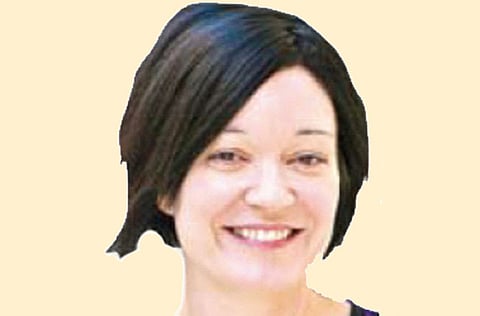Connection: Five questions to Sue Gardner
Executive Director of the Wikimedia Foundation speaks exclusively to Gulf News

What are your plans for the Middle East?
I want to increase readership of Wikipedia in the region, and to encourage more people to try helping write Wikipedia. There are more than 250 language versions of Wikipedia (e.g., English, Arabic, Persian, Turkish, French, etc.), and each is a unique cultural product, entirely written by ordinary people, volunteers, who speak that language.
However, there are disproportionately fewer people helping to write Wikipedia from the Middle East compared with other parts of the world, and I'd like to see that change. I would like to have Middle Eastern people contribute to Wikipedia in all the languages they speak, so that the rest of the world can benefit from what they know, and so that they can learn from each other. Wikipedia's only as good and rich and complete as the diversity of people who contribute to it, so we need more Middle Easterners helping Wikipedia achieve its full potential.
What is your expectation for the first office in India?
Our office in India will be the first time the Wikimedia Foundation has opened an official presence outside the United States. We're doing it because there's enormous potential there for us to recruit new Wikipedia editors to help write Wikipedia in the several dozen languages that are widely spoken in India. It's experimental for us. If we're successful in recruiting new Wikipedia editors in India, we will try the same tactics in other parts of the world.
How difficult is it to survive only on donations?
It's actually quite easy! More than 400 million people around the world read Wikipedia regularly. They read it, they find it useful, and they're grateful it's available for them, for free, and without any kind of commercial bias. Many are happy to donate a small amount of money to offset the costs of their use. Our average donation is about $25 (Dh92), and donations come in from ordinary people all around the world: parents who are grateful their kids got help with their homework, graduate students praising Wikipedia for helping them through college, people who are happy Wikipedia helped them satisfy their curiosity, or better understand a medical condition they were facing, or research something for their jobs.
I'm glad that ordinary people are willing to support Wikipedia, because it's a system that appropriately aligns our mission — to provide people around the world with free information in the language of their choice — with our funding. The two are never in conflict, which is ideal for a non-profit organisation because it enables you to focus wholeheartedly on your core work. Our system works really, really well.
Have you visited the United Arab Emirates?
Yes. I was in Dubai a few months ago, speaking at the TEDx conference. That was my first visit to Dubai.
How do you read your news? Print newspapers/magazine, iPad or online news?
We live in a golden age for information, and I'm delighted we've got so many options for finding useful news and information: more than ever before in human history. I get all my news online, and I read hundreds of sources regularly, including newspaper and magazine sites, blogs and speciality sites, community sites such as Reddit and Metafilter, and also social sites like Twitter, Facebook and LinkedIn.
I have never actually read "news" on Wikipedia, but I frequently go to Wikipedia for context after hearing about something that's just happened.
I am not a big fan of the iPad, personally. One of the best things about computers is that you can produce and share material, in addition to just consuming it. The iPad is like a TV or a radio, in that it's designed for consuming corporate-made media, and I am personally not all that interested in having a device dedicated solely to that. I don't own a television either, probably for similar reasons.
- Eric Schmidt, 55, is being replaced as Google's CEO by co-founder Larry Page. Eric, who is famous for bombastic quotes, gave a final raspberry on his twitter account - "Day-to-day adult supervision no longer needed!" - referring to Page 38. The announcement left the market optimistic. A younger mind will be necessary to understand another one: Zuckerberg.
Sign up for the Daily Briefing
Get the latest news and updates straight to your inbox



